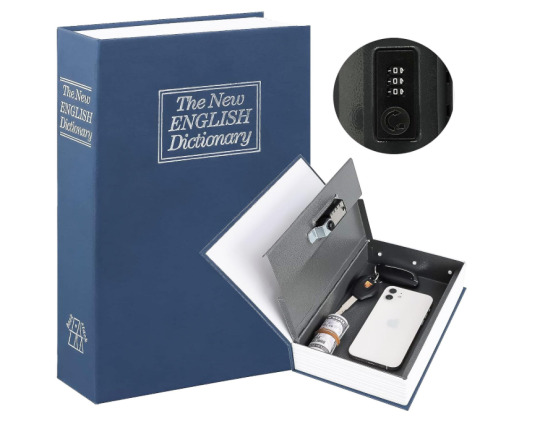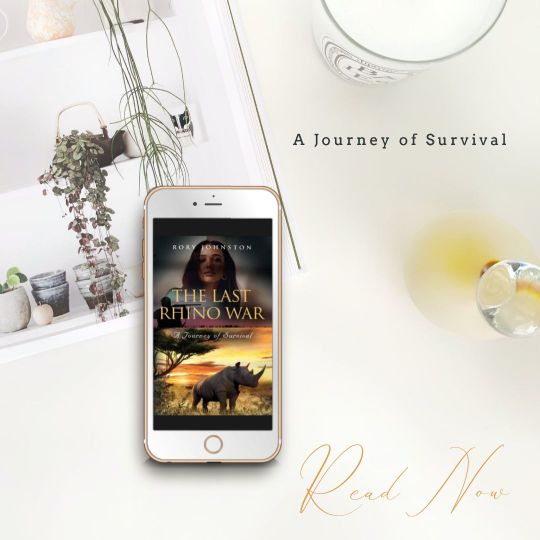#BookLocker
Explore tagged Tumblr posts
Text
Hidden in Plain Sight: The Ultimate Book Locker Safe for Your Valuables
In today’s world, keeping your valuables safe is a top priority. Whether it's cash, jewellery, important documents, or even your emergency stash, traditional safes can sometimes be obvious and easy targets. What if you could hide your precious items in something that looks completely ordinary? Introducing the Shopo Book Locker Safe, a smart, stylish, and secure way to store your essentials without drawing attention!

Why Choose the Shopo Book Locker Safe?
1. Disguised as a Real Book
The hardest things to find are often hidden in plain sight. This book locker looks just like a regular hardcover book, blending seamlessly into your bookshelf or table. Made with environmentally friendly resin, it mimics real book pages and offers a durable hardback cover that makes it indistinguishable from an actual book.
2. Secure 3-Digit Combination Lock
No more worrying about losing keys! This book safe comes with a state-of-the-art 3-number combination lock that ensures top-notch security. Simply set your personal passcode and reshuffle the numbers to keep intruders away.
3. Durable and Portable
Built with a sturdy zinc alloy lock, this safe is far superior to plastic alternatives. Compact and lightweight, you can easily carry it in your briefcase or backpack while traveling or store it securely at home or in your office.
4. Perfect for Storing Valuables
Measuring 18cm x 12cm x 5.5cm, this book safe is ideal for keeping jewellery, important documents, cash, or even sentimental items secure. Whether you're at home, in a dorm room, or at the office, this is the perfect way to keep your valuables protected from prying eyes.
5. Stylish and Functional
Not only is this book safe a clever security solution, but it also adds a stylish touch to your bookshelf. The multicolour design ensures that it blends well with other books, making it even more discreet.
Who Needs This Safe?
Homeowners: Keep emergency cash, important papers, and expensive jewellery hidden from intruders.
College Students: Perfect for storing valuables in dorm rooms where security might be an issue.
Travelers: Carry small yet important items securely in your luggage without raising suspicion.
Office Workers: Store confidential documents and valuable items right on your desk without anyone noticing.
How to Use?
Set your unique 3-digit passcode following the user manual.
Place your valuables inside the locker.
Close the book, shuffle the numbers, and place it among your books.
Enjoy peace of mind knowing your items are safe and sound!
Final Thoughts
In a world where security is becoming more important than ever, the Shopo Book Locker Safe is a game-changer. It’s a perfect blend of discretion, security, and convenience. Whether you need a hidden storage space at home, in your dorm, or while traveling, this safe locker book is the ultimate solution!
📌 Don’t wait! Get your Shopo Book Locker Safe today and keep your valuables protected in style.
#HiddenSafe#BookLocker#HomeSecurity#SecretStorage#JewelrySafe#CashLocker#SmartStorage#SafetyHacks#SecureHome#OfficeSecurity#ShopoSafe#TravelEssentials#HomeImprovement#LockBox#DormRoomEssentials#AntiTheft#PortableSafe#SecureStorage#GiftIdeas#DiscreetSecurity
0 notes
Text
Bernadette and Lucy's lil baby :3 (yes they are lesbian 😋)
She is just a toddler dont be rude to her 😔

Bernadette X Lucy's ship name is Booklock
The ship name idea was taken from the first shipper of this ship: @clayhills
7 notes
·
View notes
Text
Sirius, struggling to flirt with Remus: So... you come here often? Remus: This is our dorm room.
#wolfstar#remus lupin x sirius black#remus x sirius#remus lupin#sirius black#wolfstar incorrect quotes#marauders era#marauders incorrect quotes#hp universe#hp incorrect quotes#not sure if this has been done or not#got this idea from a post by @booklocked#myopicmeerkat.incorrectquotes
172 notes
·
View notes
Text
Life of a Bastard 2017-2018 (Happy New Year)
Dreams come true when you participate, and 2017 Life of a Bastard Book Series was released in paperback and ebook.It has been a learning experience with some of my rookie mistakes, and quality feedbacks and reviews have guided my next step with this series. Turning old journals into a readable book was not done alone but with the help of others and the inspiration from my friends and everyday people.Create anything put it out there you do open yourself up to criticism and sometimes downright dislike, grow from that!
Non-Fiction is not easy because there will be disagreements of events with someone screaming libel as they pick and choose what to be outraged about without reading everything and not judging it within the context, to them I say "keep reading." Volume 2 will be released in 2018 (new copy editor and proofreaders this time). Working on Life of a Bastard Vol. 1 audiobook ( learning the process ) and the Spanish version both will come out before vol.2 ( still an open job).
Life is good; I am lucky I get to share "Life of a Bastard," and others share their creations with me. Pick up Dandelions by Jennifer Buck ( 5 Stars )
Create in 2018!
#Damien Black#Kindle#Audiobook#Laura Caiafa#Booklocker#Jennifer Buck#Javier Soto#Life of a Bastard#Goodread#La Vida De Un Bastardo
1 note
·
View note
Photo

Monday’s word #InspirationalMotivationalEncouragement #Womenempowerment #Womensupportingwomen #BlackWriters #WritingCommunity #ReadingCommunity #BookLockers #IAmReading https://www.instagram.com/p/ClhWtK7uG_F/?igshid=NGJjMDIxMWI=
#inspirationalmotivationalencouragement#womenempowerment#womensupportingwomen#blackwriters#writingcommunity#readingcommunity#booklockers#iamreading
0 notes
Text
Book Blitz: The Last Rhino War
Book Blitz: The Last Rhino War
A Journey of Survival Fiction, Adventure with Romance Publisher: BookLocker This is a story of one man, Mike Delport, a professional hunter, and his journey as he is caught up in in the unspeakable violence of the illegal rhino horn trade to his redemption through love and newfound commitment to conservation. At his hunting ranch in South Africa, times are tough. Hunting of rhino has…

View On WordPress
0 notes
Text
The Last Rhino War by Rory Johnston
The Last Rhino War by Rory Johnston
A Journey of Survival Fiction, Adventure with Romance Publisher: BookLocker … … This is a story of one man, Mike Delport, a professional hunter, and his journey as he is caught up in in the unspeakable violence of the illegal rhino horn trade to his redemption through love and newfound commitment to conservation. At his hunting ranch in South Africa, times are tough. Hunting of rhino has just…

View On WordPress
0 notes
Text
The Last Rhino War Blitz
The Last Rhino War Blitz
A Journey of Survival Fiction, Adventure with Romance Publisher: BookLocker This is a story of one man, Mike Delport, a professional hunter, and his journey as he is caught up in in the unspeakable violence of the illegal rhino horn trade to his redemption through love and newfound commitment to conservation. At his hunting ranch in South Africa, times are tough. Hunting of rhino has…

View On WordPress
0 notes
Text

I’ve got books!
If you want to order a PDF copy, it’s just three bucks off of BookLocker’s website. https://booklocker.com/books/11728.html
You can also order my book right from that link as well for 16.95!
Otherwise, places like Amazon and Barnes and Noble have it on their webpage. Go check it out!
A quick note for buying off Amazon...I have no control over the prices there! Amazon has the rights to raise or lower the price of my book as they deem fit. Because of this, Amazon might be more expensive than BookLocker. (BookLocker is the publishing company itself, while Amazon is a third party.) This also might pertain to other third party websites and bookstores.
Thank you all for your generosity. I never thought it would be possible for this to happen. But here I am with my first published book. I hope to have another by the end of the year! (It will probably be later though).
0 notes
Text
Ok folks. I just uploaded my print ready manuscript to BookLocker. Lesson learned here. I was provided with a galley copy for review. Unfortunately I found some minor errors even after numerous proof reads. So I have to fork out an extra $98 dollars since the copy was already in the print system. I can not emphasize this enough. The devil is in the details. A big shout out to Mr. Jacob Fennel who did my final proofread before submission. It is always pretty awesome when one of your good friends happens to be an English teacher with a background in editing and proof reading. Anyways, more to follow.

0 notes
Text
90s Underground Newsletter
Life of a Bastard Vol. 2 (2018) will Include three volumes of this trouble making newsletter by the foster care heroes of YRC connecting the events of Life of a Bastard Book Series.
#Goodread#Coming of Age#Foster Care#Booklocker#Child Abuse#Spanish Harlem#Damien Black#Children's Village#Indie Writer#Laura Caiafa#Aging Out#Life of a Bastard#foster care#life of a bastard
0 notes
Photo

English Dictionary Book Money Safe Box | Safety Storage
https://www.ebay.com/itm/392646964218
#English #Dictionary #Booklocker #Moneysafe #SafeBox #Hiddenstorage #SafetyLocker #Minisafe #Minilocker #Cashstorage
0 notes
Text
OFFERS TO PROMOTE THE BOOK
OFFERS TO PROMOTE THE BOOK
My Reply: No thank you.
I’ve found my new book, MYSTIC EXPERIENCE OF REALITY, pub. BookLocker, is finding its own readers – those who are bewildered by an apparent calling they don’t understand, as well as by scientists and academics who are puzzled by the historical mystic phenomena the book is all about; and others, still secret mystics, who are comforted by the validation the contents offer.…
View On WordPress
0 notes
Text
Beneath the Surface of Helicopter Parenting
The prevalence and rise of anxiety is documented and, with the abundance of informational sources available at arms-length, you do not have to look far for bad news. A sense of danger, both subtle and blatant, projects from the screens that dominate attention.
As the world gets bigger in an interconnected way, the interpersonal sphere of those closest and most important to us becomes more influential, particularly to the basic needs of children. The holding environment created by parents while children are dependent, as well as the health of the attachment, become crucial to the quality of two vital parenting responsibilities: providing the safety of “home base” as well as the conditions for exploration.
How some have chosen to engage this challenge may seem to have some value on the surface, but on a deeper level sabotages fundamentals of growth. “Helicopter” parenting, the hovering, overinvolved, and overprotective posture assumed by many moms and dads, attempts to spare children from pain, suffering, conflict, and the darker, cruder side of life. While it may appear to come from a place of positive intent, the approach derives from pain and fear. While hovering may have its roots in a parent’s personal history or lack of insight into healthy development, insulating children from the challenge and emotions of conflict, responsibility, and adversity comes at a cost.
Equal to the importance of providing nurturance and support, is what balances the authoritative parenting style: setting limits and building the coping and problem-solving skills so important to resilience, self-control, and personal responsibility. Interestingly, when we examine the four parenting styles that emerge from the combination of levels of the factors of support/nurturance and demand/expectations, only one style is associated positively with self-regulation: the authoritative style. This style is one that is high in support and demand. The authoritative parent acknowledges that building relationships, competence, and autonomy all require a flexible, resilient character, one that uses the ups and downs of life as opportunities to grow and learn. Self-regulation emerges both from modeling as well as allowing children the opportunity to experience, modulate, and manage the negative emotions that accompany conflict, disappointment, and adversity.
Hovering and clearing a sterile swath of problem-free terrain does not provide a realistic environment for children to grow from dependent to independence. Studies consistently point to the connection between this parenting approach and less than optimal developmental outcomes in the areas social-emotional, academic productivity, and self-regulation. The meta-message of hovering is “You are weak and you can’t handle this.” The fear that fuels protectiveness over time creates the conditions of entitlement, anxiety, and dependence. Helicopter parents assume that there are no consequences to their actions, and that independence and resilience are a function of age and genetic make-up, and not experience. But the detriment to development surfaces very early as other children only will play with someone for so long when that child always has to have it his way and falls apart when he doesn’t.
This does not mean parents should go looking for conflict and challenge. Everyday life offers plenty of opportunity to increase autonomy and resilience. For young children, play can be as challenging as it gets, full of negotiation, delaying gratification, and things just not going your way. For older children, peer relationships and developing a sense of competence are challenging with plenty of room to learn and practice coping skills, problem-solving, and regulating emotions.
Here are 5 strategies to help parents shift from helicopter mode to a more authoritative approach:
Make sense of your experience of being parented. Our most intense and intimate experience of parenting is the first-person experience of our own upbringing. A great deal of this time we were dependent upon our parents on our way to becoming independent. This point of view is critical to understanding how we learned about ourselves, relationships, and how the world works. A robust predictor of parenting is whether or not we have made sense of our experience of being parented. Simply put, if we have made a coherent narrative of the past, these experiences will not intrude upon the present. This is a hopeful notion for regardless of past conditions, we can make sense and parent in a proactive and responsive manner.
Build problem-solving skills. Problems are a regularly occurring part of life and are opportunities to build our thinking capacity as well as reciprocity within relationships. Studies find that intrusive and over-controlling parenting interferes with the development of emotional regulation and inhibitory control that children need to handle problems. Normalizing the inevitability of problems and modeling aloud the problem-solving process builds skills and reduces anxiousness.
Process disappointments. Feeling fully from start to finish when things do not go our way is a valuable experience. Processing the sequence of emotions, choices, and outcomes creates coherent narratives and is more likely to promote an approach attitude rather than the avoidance stance that is common in anxiety.
Coach children through conflicts. At the psychological core of well-being is the attitude of approach rather than avoid. Providing the appropriate scaffolding through conflict builds the cognitive and emotional resources needed for present and future challenges. This empowering stance is much different than letting kids figure it out for themselves for the literature points out that early on children require scaffolding and co-regulation from adults.
Model resilience and composure. Children learn substantial lessons by watching us. How we handle when things go our way and when things do not is in full view. We can use these moments purposefully in modeling the beliefs, skills, and attitudes that we say matters. Do not underestimate the power of walking your talk for this creates the conditions within the family culture for grit and resilience to develop.
References
Panepinto, J.C. (2016). Up follows down: Resilience in everyday life. Bradenton, FL: Booklocker.
Perry, N. B., Dollar, J. M., Calkins, S. D., Keane, S. P., & Shanahan, L. (2018). Childhood self-regulation as a mechanism through which early overcontrolling parenting is associated with adjustment in preadolescence. Developmental psychology.
Siegel, D. J., & Hartzell, M. (2013). Parenting from the inside out: How a deeper self-understanding can help you raise children who thrive. TarcherPerigee.
https://ift.tt/2MJQ9ft
from World of Psychology https://ift.tt/2PMmgg2 via theshiningmind.com
0 notes
Text
Beneath the Surface of Helicopter Parenting
The prevalence and rise of anxiety is documented and, with the abundance of informational sources available at arms-length, you do not have to look far for bad news. A sense of danger, both subtle and blatant, projects from the screens that dominate attention.
As the world gets bigger in an interconnected way, the interpersonal sphere of those closest and most important to us becomes more influential, particularly to the basic needs of children. The holding environment created by parents while children are dependent, as well as the health of the attachment, become crucial to the quality of two vital parenting responsibilities: providing the safety of “home base” as well as the conditions for exploration.
How some have chosen to engage this challenge may seem to have some value on the surface, but on a deeper level sabotages fundamentals of growth. “Helicopter” parenting, the hovering, overinvolved, and overprotective posture assumed by many moms and dads, attempts to spare children from pain, suffering, conflict, and the darker, cruder side of life. While it may appear to come from a place of positive intent, the approach derives from pain and fear. While hovering may have its roots in a parent’s personal history or lack of insight into healthy development, insulating children from the challenge and emotions of conflict, responsibility, and adversity comes at a cost.
Equal to the importance of providing nurturance and support, is what balances the authoritative parenting style: setting limits and building the coping and problem-solving skills so important to resilience, self-control, and personal responsibility. Interestingly, when we examine the four parenting styles that emerge from the combination of levels of the factors of support/nurturance and demand/expectations, only one style is associated positively with self-regulation: the authoritative style. This style is one that is high in support and demand. The authoritative parent acknowledges that building relationships, competence, and autonomy all require a flexible, resilient character, one that uses the ups and downs of life as opportunities to grow and learn. Self-regulation emerges both from modeling as well as allowing children the opportunity to experience, modulate, and manage the negative emotions that accompany conflict, disappointment, and adversity.
Hovering and clearing a sterile swath of problem-free terrain does not provide a realistic environment for children to grow from dependent to independence. Studies consistently point to the connection between this parenting approach and less than optimal developmental outcomes in the areas social-emotional, academic productivity, and self-regulation. The meta-message of hovering is “You are weak and you can’t handle this.” The fear that fuels protectiveness over time creates the conditions of entitlement, anxiety, and dependence. Helicopter parents assume that there are no consequences to their actions, and that independence and resilience are a function of age and genetic make-up, and not experience. But the detriment to development surfaces very early as other children only will play with someone for so long when that child always has to have it his way and falls apart when he doesn’t.
This does not mean parents should go looking for conflict and challenge. Everyday life offers plenty of opportunity to increase autonomy and resilience. For young children, play can be as challenging as it gets, full of negotiation, delaying gratification, and things just not going your way. For older children, peer relationships and developing a sense of competence are challenging with plenty of room to learn and practice coping skills, problem-solving, and regulating emotions.
Here are 5 strategies to help parents shift from helicopter mode to a more authoritative approach:
Make sense of your experience of being parented. Our most intense and intimate experience of parenting is the first-person experience of our own upbringing. A great deal of this time we were dependent upon our parents on our way to becoming independent. This point of view is critical to understanding how we learned about ourselves, relationships, and how the world works. A robust predictor of parenting is whether or not we have made sense of our experience of being parented. Simply put, if we have made a coherent narrative of the past, these experiences will not intrude upon the present. This is a hopeful notion for regardless of past conditions, we can make sense and parent in a proactive and responsive manner.
Build problem-solving skills. Problems are a regularly occurring part of life and are opportunities to build our thinking capacity as well as reciprocity within relationships. Studies find that intrusive and over-controlling parenting interferes with the development of emotional regulation and inhibitory control that children need to handle problems. Normalizing the inevitability of problems and modeling aloud the problem-solving process builds skills and reduces anxiousness.
Process disappointments. Feeling fully from start to finish when things do not go our way is a valuable experience. Processing the sequence of emotions, choices, and outcomes creates coherent narratives and is more likely to promote an approach attitude rather than the avoidance stance that is common in anxiety.
Coach children through conflicts. At the psychological core of well-being is the attitude of approach rather than avoid. Providing the appropriate scaffolding through conflict builds the cognitive and emotional resources needed for present and future challenges. This empowering stance is much different than letting kids figure it out for themselves for the literature points out that early on children require scaffolding and co-regulation from adults.
Model resilience and composure. Children learn substantial lessons by watching us. How we handle when things go our way and when things do not is in full view. We can use these moments purposefully in modeling the beliefs, skills, and attitudes that we say matters. Do not underestimate the power of walking your talk for this creates the conditions within the family culture for grit and resilience to develop.
References
Panepinto, J.C. (2016). Up follows down: Resilience in everyday life. Bradenton, FL: Booklocker.
Perry, N. B., Dollar, J. M., Calkins, S. D., Keane, S. P., & Shanahan, L. (2018). Childhood self-regulation as a mechanism through which early overcontrolling parenting is associated with adjustment in preadolescence. Developmental psychology.
Siegel, D. J., & Hartzell, M. (2013). Parenting from the inside out: How a deeper self-understanding can help you raise children who thrive. TarcherPerigee.
https://www.nimh.nih.gov/health/statistics/any-anxiety-disorder.shtml
from World of Psychology https://psychcentral.com/blog/beneath-the-surface-of-helicopter-parenting/
0 notes